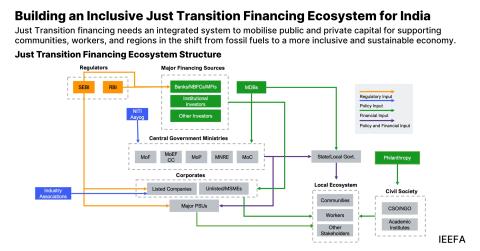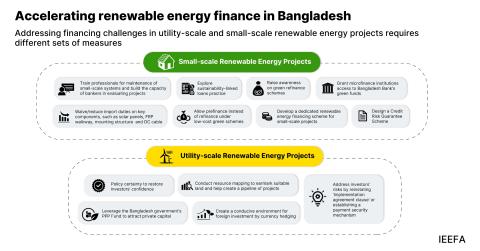IEEFA U.S.: ‘New Promise Act’ would help communities transition from coal-based economy
April 2, 2021 (IEEFA) — The recently introduced New Promise Act, sponsored by Rep. Tom O’Halleran, D-Ariz., marks a potentially important step forward in recognizing the need for a federal commitment to economic revitalization in communities that have been hard-hit by the decline of the coal economy.
The bill, inspired by the closure of the Navajo Generating Station in O’Halleran’s district, establishes a framework and funding for economic development assistance; fiscal relief to local governments facing a major loss to their tax base; and transition assistance, including direct wage relief, to workers and their families. The holistic framework is modeled on successful community economic transition programs such as the Department of Defense’s Base Realignment and Closure program.
The Institute for Energy Economics and Financial Analysis (IEEFA) commented on the need for such a federal program in 2017 and 2019 reports on the Navajo Generating Station and the need to plan for the plant’s inevitable closure.
Plans include infrastructure, reclamation and renewable energy opportunities
The bill would provide funding to local governments to cover lost revenues for as long as seven years (including taxes and lease payments), giving them time to create and implement a community economic development plan. An economic development plan would include an assessment of opportunities for infrastructure, reclamation of shuttered coal plants and related coal ash sites, boosting of renewable energy and other local industries, as well as coordination with local education institutions and unions for retraining and apprenticeship opportunities. The measure also would establish teams of federal grant specialists to help communities use federal funds to implement such initiatives.
THE NEW PROMISE ACT ALSO CREATES A 10-YEAR PROGRAM to cover lost wages and benefits for workers in transition, including health and pension benefits. The bill would further require utilities to provide advance notice of the closure of a coal-fired power plant, including the utility’s plans for workforce transition and site reclamation.
This program includes the flexibility to support both large-scale economic development and small business assistance. The revenue replacement would help communities that can show actual revenue losses and cushion the impact of losses as other economic development initiatives are implemented. IEEFA has previously commented on work in Ohio and western New York to mitigate the impact of closing coal plants on local budgets and to provide new sources of revenue with renewable energy development.
THE BILL, WHICH WOULD CREATE A CABINET-LEVEL PANEL, would require states to bring together labor, business and broad community stakeholder participation. These partnerships are the essential bonds for successfully rebuilding communities. Although the bill focuses on coal plant closures, the framework also could easily be expanded to encompass coal mining communities.
O’Halleran is making a critically important point with this bill. Coal, oil and gas—and the communities that have hosted the industries—have made a large contribution to the nation and the global economy. It has come at great cost, particularly to the communities and workers who made it possible.
The effect of such initiatives will be national, and ultimately, global
The proposal recognizes the next phase of economic growth in the country will be different. The benefits of this legislation may look local; if it succeeds, communities in Arizona, Kentucky, West Virginia, Illinois, Ohio, Montana, Wyoming, Colorado, Pennsylvania, New Mexico and Texas will benefit. The effect of such initiatives, however, will be national and ultimately global. The economy is changing, but families need not lose their income and communities do not need to lose their quality of life as healthy new industries are fostered.
The federal government has intervened before to assist communities in the face of major structural changes to the local economy. The O’Halleran bill would create public and market confidence during a time of change and uncertainty. An infusion of resources to communities and workers who have been hard-hit by the decline of the coal industry is long overdue. This bill is an important step towards righting that wrong.
Tom Sanzillo ([email protected]) is IEEFA’s director of financial analysis.
Cathy Kunkel ([email protected]) is an IEEFA energy finance analyst.
Related items:
IEEFA U.S.: Energy transition to renewables likely to accelerate over next two to three years
IEEFA U.S.: Virginia coal plant’s future isn’t bright: Preparation for transition should commence now
IEEFA update: Out-to-pasture coal plants are being repurposed into new economic endeavors
















